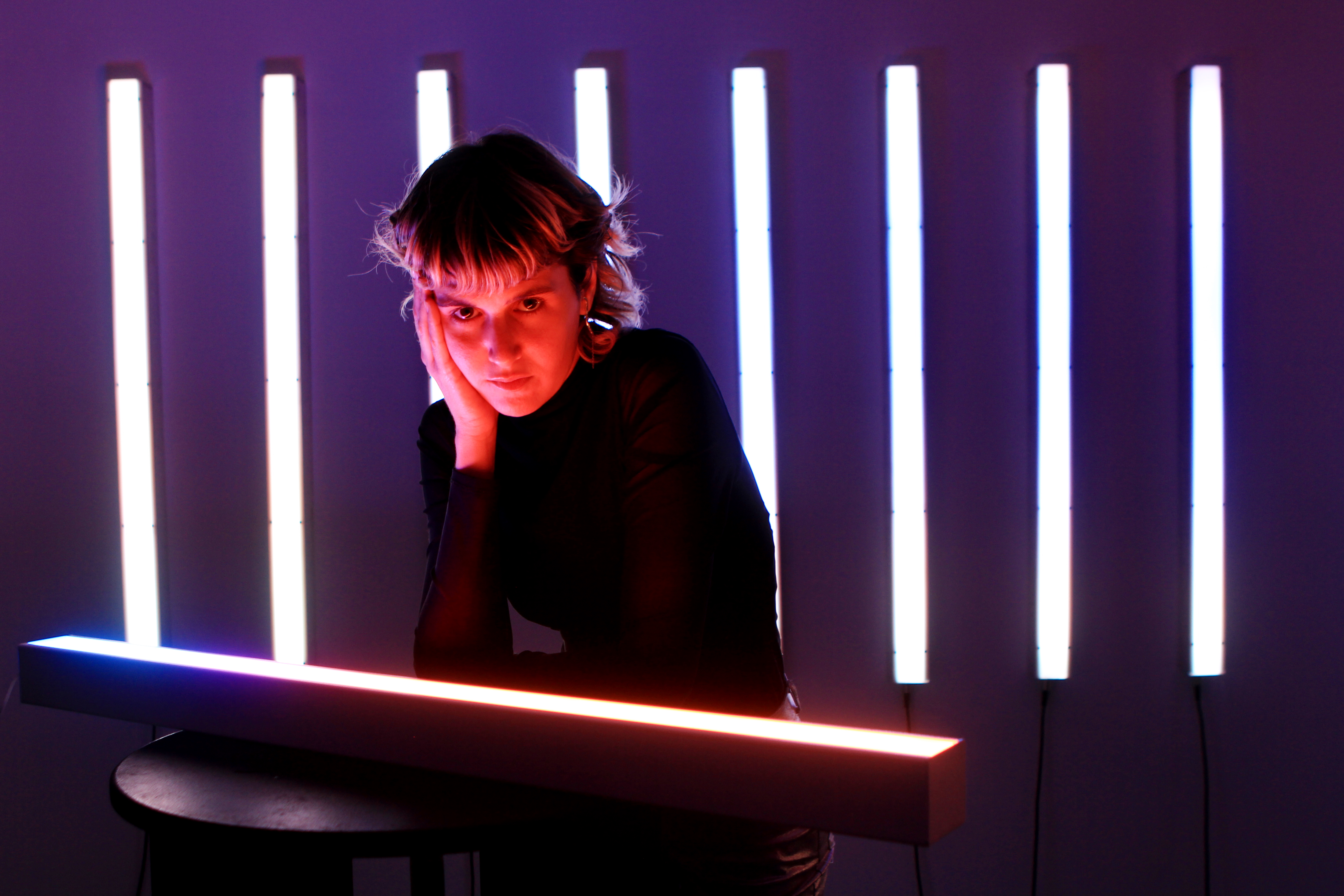
Magdalena Molinari (Buenos Aires, 1983) is an architect, visual artist, and holds a master’s degree in Electronic Arts. Combining electronics, programming, light, color, video, and digital environments, her work explores the relationship between control systems, spatial devices, and materials to create electronic light installations that generate experiences of pure sensation and reflect on the connection between art and science through the physics of light.
In 2010 she earned her degree in Architecture from the Faculty of Architecture, Design, and Urbanism at the University of Buenos Aires (UBA). Since then, she has studied electronics and programming through independent institutions and as a self-taught practitioner. In 2020 she completed a master’s degree in Electronic Arts at the National University of Tres de Febrero (UNTREF), where she currently teaches. She has exhibited her work in numerous museums and cultural centers in Argentina, Chile, and Canada, and has given talks at the University of Palermo, the National University of Rosario, and the National University of Tres de Febrero. She has led workshops investigating the transition from digital image to light and teaches in the Master’s program in Electronic Arts at UNTREF, the Master’s program in Interactive Design at FADU, and the Bachelor’s program in Design at the Torcuato Di Tella University.
Between 2019 and 2024, she was part of the Amplify D.A.I. platform for digital women and non-binary artists. Since 2020, Molinari has been working on a virtual reality and performance project titled Sensitive Superpositions with sound artist Erin Gee. In 2022, she received first prize at MediaLab CCEBA for her Land Art light installation titled FOTOESFERAS. Since 202,3 she has been part of the Presente Continuo program in science, art, and technology, led by Fundación Williams and Bunge & Born. In 2024, she presented her first solo exhibition, Un instante de luz, at Galería Acéfala and did the lighting design for the experimental opera La virgen de los Generados. In 202,5 she participated with a site-specific light installation at the ArtLum light art festival in Santiago de Chile and presented a light-electronic installation titled Machines of Joy at the international DEVCON conference at La Rural. She is a founding member of Piso29, a space created by artists and designers specializing in the intersection of high and low technologies.